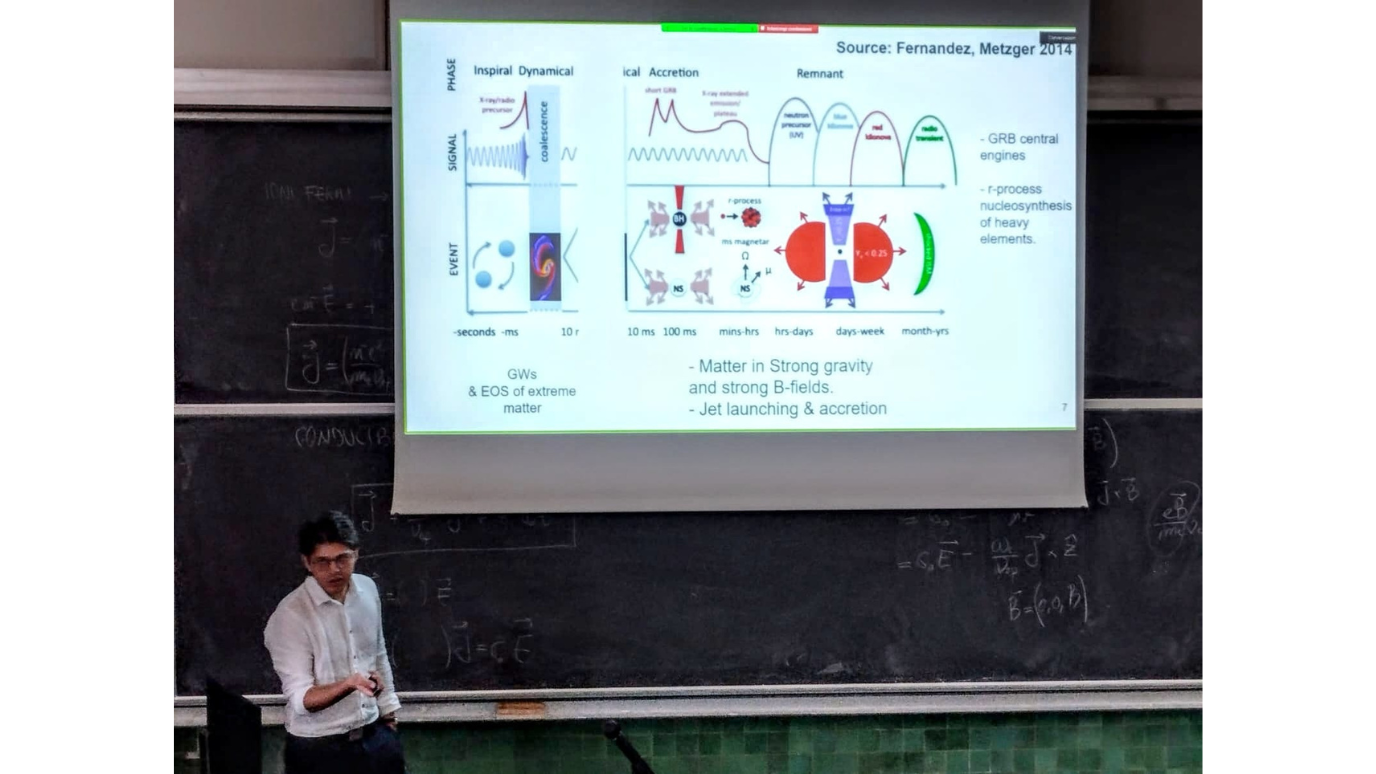Sebastian Gomez-Lopez (Sapienza, University of Rome)
The multimessenger observational campaign that connected the transients GW170817, GRB 170817A, and AT2017gfo to the binary neutron star merger in the galaxy NGC 4993 was extremely successful. Such coincidence of Electromagnetic (EM) and Gravitational Wave (GW) observations of compact binary mergers and the direct implications in astrophysics and cosmology may be viewed as a proof of concept for all the physics we can prove given such an event. Even though observing further multimessenger events has been challenging in recent years, the GW community has implemented and incrementally improved software in preparation for the analysis of two possible future scenarios.
1) A well-localized GW trigger, uncovered by low-latency all-sky all-time pipelines. In this case, relevant information is delivered to EM facilities for further follow-ups.
2) A gamma-ray burst (GRB) trigger reported first Fermi-GBM and Swift or a fast radio burst (FRB) by CHIME missed by all-sky all-time GW pipelines. In such cases, a deep search for GWs is conducted with targeted coherent pipelines using an EM-informed detection statistic to increase the chances of detection.
This talk will focus on the second case and will introduce PyGRB; a coherent matched filtering search for compact binaries built completely within the open source state-of-the-art PyCBC framework that has been widely used over the years to analyze data from ground-based interferometers to assess the astrophysical significance of GRB and FRB coincidences with GW data.





















